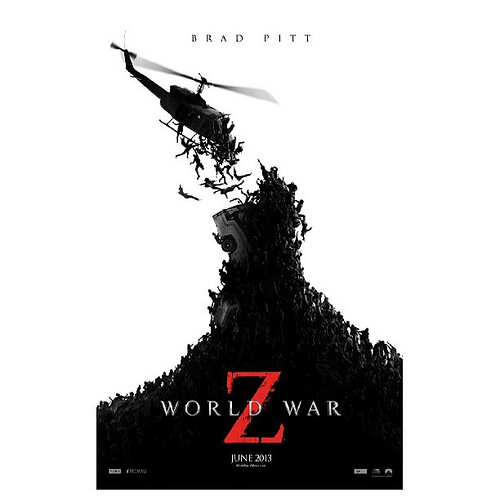It happened again. I stepped away from work for an evening to enjoy a movie and some time with family… and the next thing you know, I’ve been inspired by World War Z to write a blog post about business strategy… (I apologize ahead of time for the zombie puns).
First of all, if you haven’t seen the movie and enjoy zombies, it’s a must-see. I that the zombies in this movie were faster and more frightening than those in Walking Dead or ZombieLand, and Brad Pitt was a great hero (and I think he is getting better-looking with age!). But that’s not the point of this post (although wouldn’t it be fun to write a post about Brad Pitt the hero…but I digress).
In World War Z, a zombie apocalypse has begun and has quickly taken over most of the USA, Russia, and most other countries. Gerry (Brad Pitt’s character) finds out that, just in time for the zombies’ arrival, Israel completed a wall around Jerusalem, saving the people from undead-ness. Why they built the wall brings me to the business strategy this post is about.
In Israel, Jurgen Warmbrunn, the leader of Israel’s intelligence agency, the Mossad, tells Gerry that Israel implemented a “10th man” strategy to avoid tragedies. After ignoring hints of potential attacks and being caught off guard in the past, this 10th man strategy, simply put, was that when the first 9 men at the table agreed on something, the 10th man must take the opposite point of view. In this case, Israel’s leaders had received an email mentioning a zombie attack, and while the first 9 men declared that this was nonsense, Warmbrunn was the 10th man, and began working as though this was true. By using the 10th man strategy, Israel was able to withstand the zombie apocalypse longer than other countries. You’ll have to go see the movie to find out what happens…
The 10th Man as a Business Strategy
Imagine how this 10th man strategy could be used in business.
After completing a SWOT analysis, you would have people responsible for protecting against each possible threat, so that you have a clear plan in place in case of an apocalyptic business problem.
When looking at economic forecasts, the 10th man would take the worst case scenario and build a survival plan for it.
If concerns popped up about possible but unlikely problems with new products, someone would focus on fixing them before they cause trouble, ready with a “double tap” if they come to life.
In some companies, we see “walking dead” type of behaviour in the board room. What the CEO or president says is seen as gospel. Once their opinion is stated, the group tends to agree with little true debate. The 10th man as a business strategy would provide a “safe” way to disagree, and allow for a deeper dive into the issue or initiative.
At the very least, having a “10th man” accountable for challenging the common opinion would lead to invaluable discussion and the fleshing out of true opinions, possible problems, solutions, and more rigour behind decisions.
At the very least, it may save a product, a project, or your company, from becoming victim to undead, zombie-like “yes” men in your organization.
Pic from creative commons: http://www.flickr.com/photos/anakbrunei/9106503497/lightbox/

